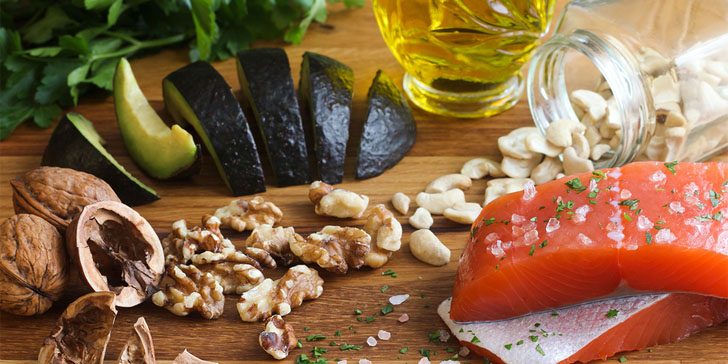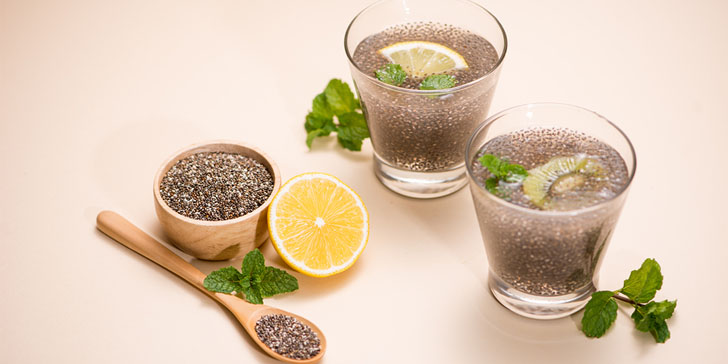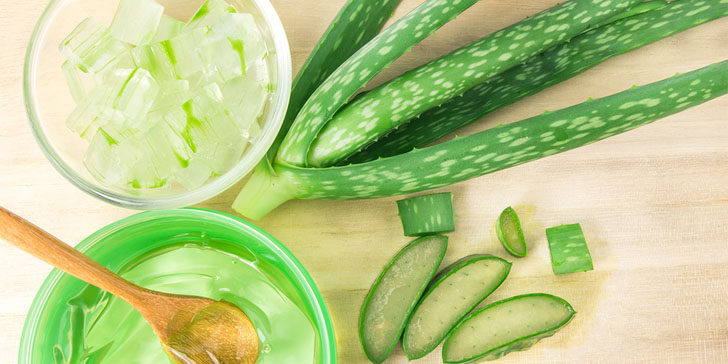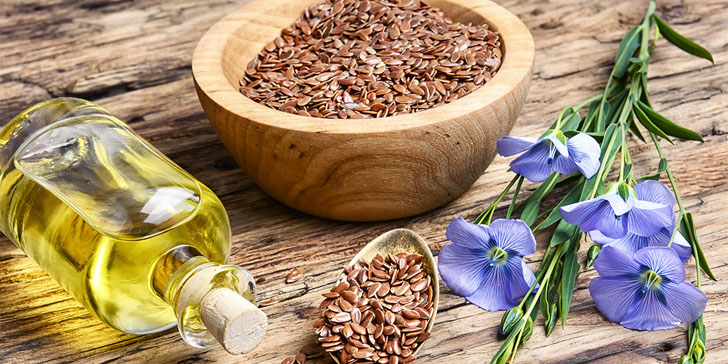Turmeric (curcuma longa) is a ginger spice commonly used in India that gives curry a yellow color. It has been used for thousands of years due to its multiple medical properties. Turmeric contains several chemical compounds, known as curcuminoids, which include the active substance curcumin.
There have been reportedly over 10,000 peer reviewed medical articles and curcumin is shown to possess significant anti-inflammatory, anti-oxidant, anti-carcinogenic, anti-mutagenic and anti-depressant properties.
However, it should be noted that turmeric only contains around 3% by weight of curcumin and is poorly absorbed in the body.
So to get the best effects, most of these research studies were done with curcumin extract to attain 1g a day. Thus, if you aim to use curcumin it may be best to use curcumin extract with black pepper to help enhance absorption of curcumin by 2000% [1].
Here are the top 12 benefits of turmeric consumption backed by peer review medical literature.
The Biggest Health Benefits Of Turmeric
1. It’s An Anti-inflammatory
When we injury our body our cells have an inflammatory to the stress. This is done to help eliminate the initial cause of the injury and clear our damaged cells.
However, if there is too much of an inflammation response this can cause changes in cell structure and leads to pain.
We take anti-inflammatory medication like ibuprofen to reduce the inflammation, swelling and pain. Studies show that curcumin has been demonstrated to be an effective anti-inflammatory medication in numerous studies [2, 3, 4, 5, 6].
Unfortunately, non-steroid anti-inflammatory medications (nsaids) such as Ibuprofen have side effects of peptic ulcer disease, kidney disease, third trimmest of pregnancy, and 3rd trimester of pregnancy [7, 8, 9, 10].
Fortunately, curcumin does not pose these risks so serves as a great alternative to fight inflammation for people with those medical conditions.

2. Its Anti-Oxidant Capacity
When the cells in our body use oxygen they produce free radicals which can cause damage to other cells and decrease cell function.
Our body produces antioxidants which are substances that bind to these free radicals to prevent damage to our cell.
Antioxidants decrease our risk from conditions ranging from heart disease, nerve damage, and cancer which are influenced by oxidative damage.
Common antioxidants include Vitamin A, C, E and Selenium which are found in beans, grains, fruits and vegetables [11]. Curcumin happens to be a strong antioxidant that is non-toxic and significant preventative and treatment effect in coronary artery disease, cancer, and diabetes [12, 13].
Interestingly, curcumin has been show to possibly even enhance the effects of other antioxidants [14]. In this way, curcumin is both an oxygen radical scavenger and one that can enhance the antioxidant capacity of other modulators.
3. It Helps With Diabetes Management
Managing diabetes with both oral medications and insulin therapy can be challenging. However, adding curcumin may be one of the best things you can do to lower you glucose levels.
Curcumin modulates many signaling molecules, including transcription factors, chemokines, cytokines, and adipokines, adiponectin, leptin, resistin, and visfatin) which are implicated in the development of insulin resistance and type 2 diabetes [15, 16,17].
A thorough systemic review of the literature was done which showed that curcumin can help reduce and treat diabetes and is recommended to be added to your diet [18, 19].
4. It Can Help With Arthritis
As mentioned before, curcumin plays a key role in anti-inflammation. Arthritis is a joint disease that is due to the inflammation of the joint.
Often the cartilage is broken down resulting in the bones rubbing against each other leading to pain, stiffness and loss of joint motion.
Joint disease releases hormones through various pathways, however, curcumin mediates a strong anti-inflammatory effect through downregulation of the inflammatory cytokines, transcription factors, protein kinases, and enzymes seen in arthritis [20, 21].
The dose recommendation for osteoarthritis via capsule is typically 400 mg to 600 mg, three times per day; or 0.5 g to 1 g of powdered root up to 3 g per day [22]. However, for rheumatoid arthritis it is recommended to do 500 mg twice daily [23].

5. It Can Help With Alzheimer’s Disease
There are limited studies that suggest that turmeric may also help with behavioral symptoms in those with Alzheimer’s disease [24].
More research needs to be done in human trials to assess if turmeric can be used for therapeutic use to break down amyloid-beta plaques (a hallmark of Alzheimer’s disease) [25, 26, 27].
6. It Can Help With Cancer Prevention
Curcumin has shown in numerous in vitro studies (done in test tubes) to show promising results as an anti-cancer therapeutic agent, however, human trials have failed to meet any significant results.
At this time, curcumin has been shown encouraging outcomes against colorectal cancer [28, 29], and helped enhance the radiosenstivity of renal cell carcinoma by suppressing the nf-κb signaling pathway [30].
It has also shown in vitro trials to have potent anti-cancer therapy in oral squamous cell carcinoma by deactivation of the mapk/erk signaling pathway [31]. Hopefully in time we see the promising results seen in vitro translate into success for human studies [32].
7. It Can Decrease Cardiovascular Risk
Curcumin may help with inflammatory effects and prevention of irregular heartbeats, such as ventricular arrhythmias [33].Curcumin also demonstrated significant improvements in endothelial function, arterial compliance, and arterial stiffness [34, 35].
In some animal trials, curcumin has shown to play a role in reducing the risk of myocardial infarction and stimulating jak 2/ stat 3 signal pathway, decreasing oxidative damage and inhibiting myocardium apoptosis. [36].
Furthermore, it may improve hdl (“good cholesterol”) and reduce ldl (“bad cholesterol”) [37, 38, 39].
8. It Can Help With Depression
Treatment of major depressive disorder can be a sensitive issue to those that are opposed to taking medication or counseling. Fortunately, studies show support for curcumin in the treatment of depression [40, 41].
Furthermore, it appears that curcumin even enhances the potency of antidepressant medications suggesting that it may be beneficial to prescribe curcumin as supplement for those already on antidepressants [42].
A robust review suggests that overall, curcumin appears to be safe, well-tolerated, and efficacious among depressed patients, however, the authors caution that several larger randomized controlled trials and follow-up studies need to be done over an extended period of time to better assess the clinical utility of curcumin for treatment major depressive disorder [43].

9. It Can Speed Up Wound Healing
Since curcumin helps reduce inflammation, it is also beneficial in reducing the body’s natural response to cutaneous wounds such as inflammation and oxidation [44].
In fact, the curcumin enhances the wound healing process through granulation tissue formation, collagen deposition, tissue remodeling and wound contraction [45, 46].
10. It Provides uv Skin Protection And Healthy Skin
Curcumin has also been shown to prevent and treat uv radiation-induced acute inflammation and photoaging [47
, 48].
This is because the curcumin can block different part of the pathways that cause skin damage, thus suggesting its use for a way to prevent photoaging skin and photocarcinogenesis (cancer induced by light).
11. It Can Help Stop Strokes
Although the studies are limited to animal models at this time, curcumin has impressively shown in post-ischemic stroke patients to reduce ischemic stroke-induced brain damage and improves functional outcomes, providing new evidence that curcumin might be a promising therapeutic strategy for stroke [49, 50, 51, 52].
12. It Helps Avoid Gastrointestinal Disorders
Those with gastrointestinal disorders such as Inflammatory Bowel Disease (Crohn’s or Ulcerative Colitis) may benefit from curcumin added to their diet [53].
The mechanism used by curcumin to treat ulcerative colitis is through reduction of oxidative stress due to its ability to inhibit inflammatory markers nf-kB.
A systemic review was done that discussed the effects of curcumin in various gastrointestinal diseases such as peptic ulcer disease, inflammatory bowel disease and gastroesophageal reflux diseaseand the results area promising [54].

Are There Any Potential Side Effects?
Overall, turmeric is safe to eat but some people may have side effects of nausea, diarrhea, increased risk of bleeding, increased liver function tests, or increased menstrual flow.
Furthermore, be aware that turmeric may interfere with anti-platelet or anti-coagulation medications such as aspirin, clopidogrel or warfarin.
Thus, you should strongly discuss this with your doctor if you have certain conditions that require you to take these medications.
Turmeric Recipe Ideas
Turmeric spice can easily be added turmeric to scramble eggs, soup and roasted vegetables. Toss it in some rice to add some spice, or mix with your greens for a zesty flavor.
If you like hot soup you can make it have a spicy taste with golden turmeric. Try these recipes for other ideas on how to take your turmeric.
However, turmeric contains around 3% by weight of curcumin and is poorly absorbed in the body it is advised to best consume curcumin extract with black pepper to increase intake and absorption.
In summary…
The Biggest Health Benefits Of Turmeric
- It’s an anti-inflammatory
- Its anti-oxidant capacity
- It helps with diabetes management
- It can help with arthritis
- It can help with alzheimer’s disease
- It can help with cancer prevention
- It can decrease cardiovascular risk
- It can help with depression
- It can speed up wound healing
- It provides uv skin protection and healthy skin
- It can help stop strokes
- It helps avoid gastrointestinal disorders


Rajiv M Mallipudi, md, mhs is an internal medicine resident physician, personal trainer, athlete and author. He has over a decade of personal training experience and helped hundreds of clients of all levels achieve their weight loss and fitness goals. This inspired him to work as a clinical researcher at the nationally recognized Johns Hopkins Hospital Weight Management Center. During medical school he and his classmates created the health and wellness organization, med fit, which provided personal training and nutrition counseling to the medical student body. In his spare time, Dr. Mallipudi enjoys playing ice hockey, dancing, and training for his next bodybuilding and powerlifting competitions.
disclaimer: Fast Proven Health and its authors may offer health, fitness, nutritional advice but this is designed for educational and informational purposes only. All the information contained on Fast Proven Health and its articles is not intended to constitute the practice of medicine. The information provided in articles on Fast Proven Health should never be relied on, or used as a substitute or replacement for professional medical advice, diagnosis, or treatment. Fast Proven Health and its authors are not responsible for any actions or inaction, safety or liability on a User’s part based on the information that is presented in the Site. If you seek medical advice, speak to a health professional in person about your particular issues.






wow, i didn’t know it has so many good benefits. i think i should try this out soon!
my mom is diabetic and it i can see that she is having a hard time managing it especially her medications. i will tell her about what i’ve learned on this article about curcumin so she could consult her doctor and might give it a try.
i’ve been hearing bout the benefits that turmeric has and one of them that interests me most is with arthritis. my dad’s been suffering from arthritis and i will have him try this.
thank you for including turmeric recipe ideas in this article. we can enjoy its benefits and eat our favorite foods too!
wow! if this could really help lessen that chances of cancer and cardiovascular issues, i’m going to try it! i’ve been seeing a lot of this lately and i don’t even read about it. i’m so glad i chanced upon this article.
i always wonder what is the main ingredient that gives curry a yellow color. now i know what it is called and not only that, i was able to find out more about its health benefits too that i can share with my friends who also love turmeric.
this is proven to help with arthritis and i’ve seen it work its miracles. my cousin tried it and it really is effective. i believe it can also treat others on this list.
my dad uses turmeric to reduce the inflammation, pain and stiffness of his arthritis. it really has incredible benefits!
i bought this and i will try it for sure. i want my husband to try it with me too. hope this works for us!
really? turmeric may limit my risk for stroke? it that is true then i am willing to take turmeric supplements.
i never knew what turmeric was until my friend told me about it. she made me try her dish (with turmeric) and i liked the taste! i did some research after that and i discovered how good it is for our body. i will use it daily.
i love the fact turmeric can help me manage my diabetes. everyone knows that it is not easy to live with it and knowing how to manage it is a very big help.
i’ve heard nothing but positive feedbacks and good things about turmeric. i am really interested in giving a try.
so many good benefits! I am now a fan especially now that i found out that it can protect my skin and keep it healthy.
i tried adding it to my scrambled eggs this morning and i liked it! will mix it with my greens tomorrow to add zesty flavor. yummy
this is a wonderful article! i found everything i need to know about turmeric! no need to go to other web pages.
one benefit of turmeric that i really love is how it can delay the aging process. so if you want to live longer and look younger, consider taking turmeric supplements.
adding turmeric to your diet is indeed one great way of decreasing cardiovascular risk and staying healthy! i am really amazed by it!
always watch out for potential side effects each time you consider trying out new foods. Make a thorough research and consult your doctor.
i am considering trying turmeric because i am impressed by its health benefits but some say that it can be harmful. i better make further research before trying it out.
i hope more studies will be done regarding how turmeric can help with Alzheimer’s disease. it will definitely be a good help.
turmeric has done wonders for me and my family! i already recommended this to my friends!
now i know why they call turmeric a miracle herb! i am excited to try it out! thanks for this amazing list of benefits!
turmeric is really beneficial for our skin. i’ve tried turmeric face mask to help reduce acne and any resulting scars. it is really effective!
in our present times, cancer seem to be too rampant. and because of our lifestyle and food choices, it is not really far from impossible so it is always better to prevent it by eating healthy and i think turmeric is a great option.
i am scared of the potential side effects of turmeric although i am fascinated by its health benefits.
apart from its health benefits, another reason why i love turmeric is how it makes healthy food taste even better! yummy!
this spice can absolutely change my life! not only it can add flavor to my cooking, it can also improve my overall health! i am starting to love this!
this is quite a revelation! hahaha! i never knew you can use turmeric to cure and prevent illness! i thought it can only be used for cooking!
i am surprised to know that turmeric can help manage diabetes. i am tired of this disease and i am happy that there are natural remedies i could try to manage it.